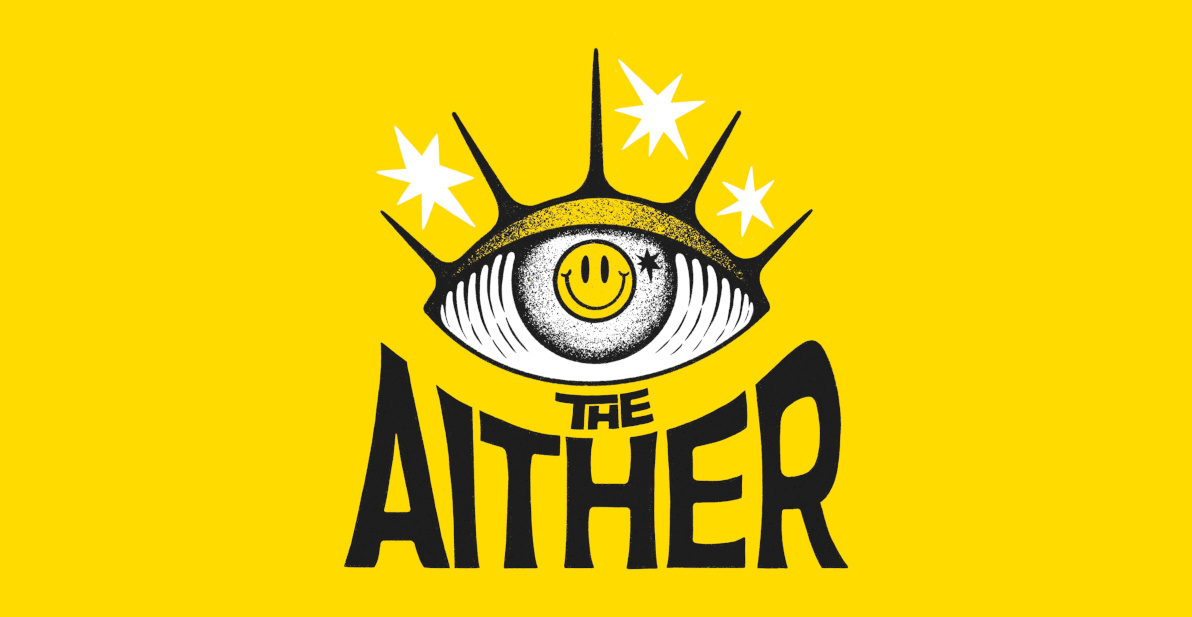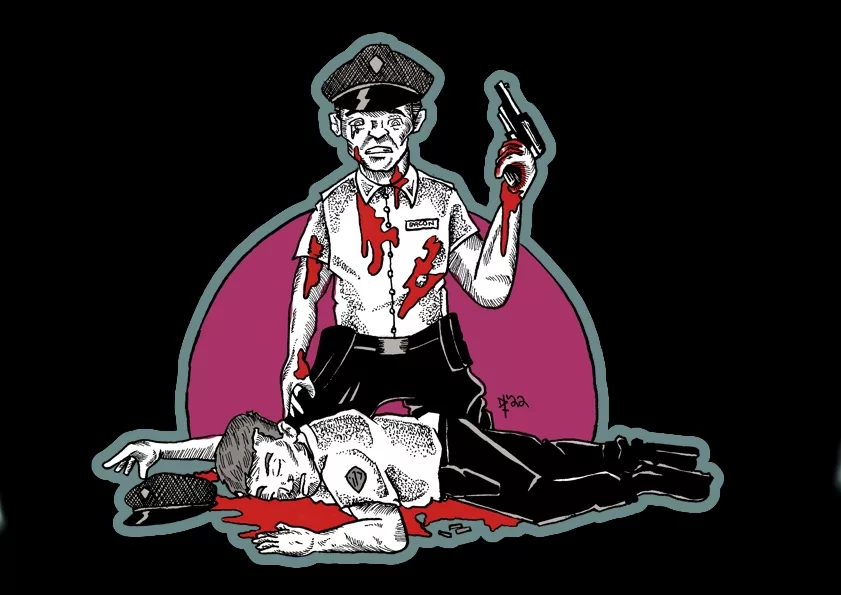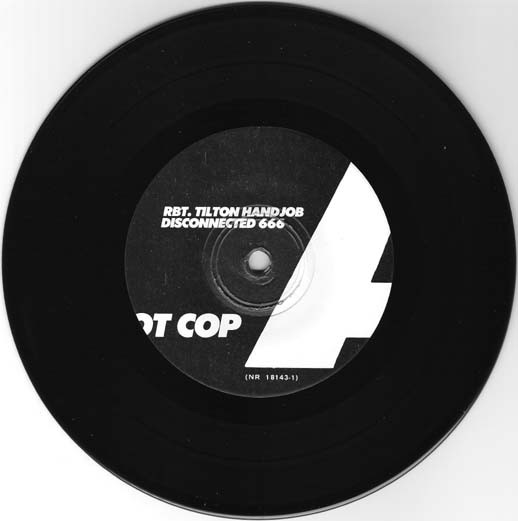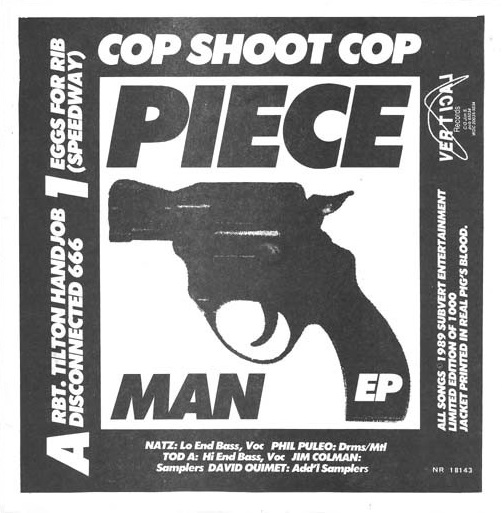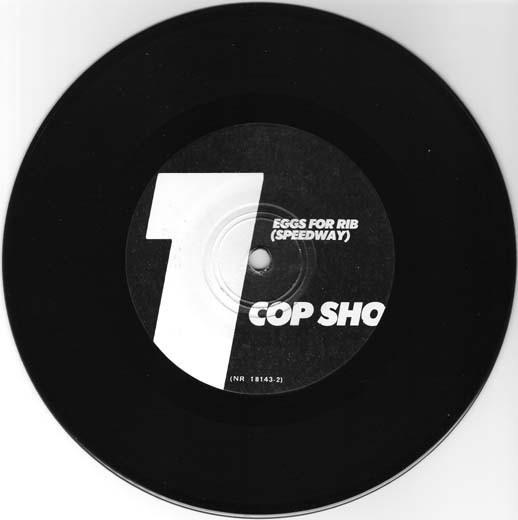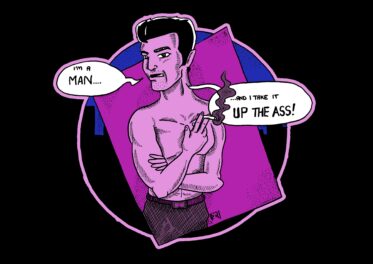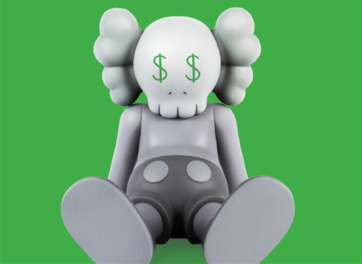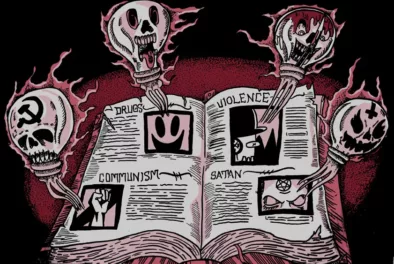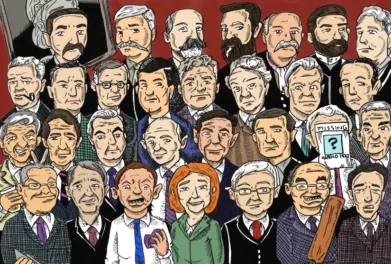“Do not accept what you can’t change,
Change what you cannot accept.”
— Cop Shoot Cop, “Chameleon Man”
Artists sometimes die misunderstood.
It is for this reason that there is a surplus of critical material on the Marquis de Sade, as varied in scope and aim as dog breeds — but the core of all this criticism is a drive to understand the Marquis and his work. Artists who died young, or died in an untimely fashion, prompt fans and scholars alike to posthumously pathologize them.
In the case of the Japanese novelist Yukio Mishima, some of the work that was written after his infamous seppuku simply gave up trying to understand not only the motivations behind his suicide, but motifs in his writing as well. Deeming Mishima and his work a product of irrationality.
Who knows how many are also forgotten because they were misunderstood?
I recently saw a bill at Cleveland punk bar …Now That’s Class! that comprised of Orphaned (a new local death metal three-piece, that gig being their first ever), Body Void (a sludge trio from the Bay Area), Uniform (an industrial metal outfit from New York City that are signed to vogue independent label Sacred Bones), and Portrayal of Guilt (one of the pillars of the recent screamo revival, and the main reason I went).
After Uniform put on an impressive performance, I went over to the merch table and chatted up frontman Michael Berdan, as I bought a shirt that depicted a black and white photo of a hand cradling a small python with the band name UNIFORM printed above the image and the phrase TRUE FAITH below it — One of the most interesting shirts I’ve purchased at a gig in a long time. This led to us briefly talking about snake-handling Pentecostal churches, because there are some in and adjacent to my hometown in West Virginia.
During banter between songs earlier, Michael had said that Uniform hailed from New York; which prompted me to ask him about Cop Shoot Cop.
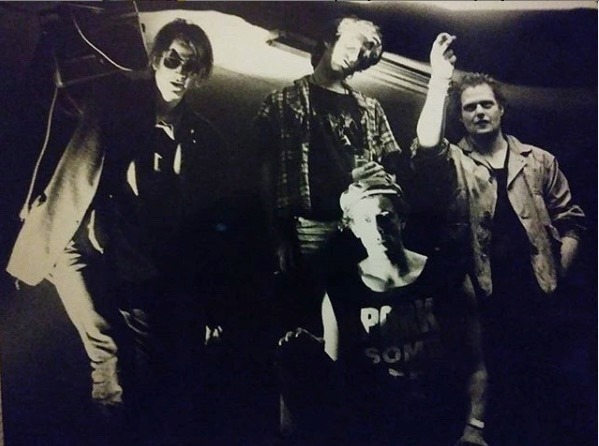
Of the rogues’ gallery of New York bands I could’ve asked about, I chose Cop Shoot Cop because there were elements to what Uniform played that reminded me of Cop Shoot Cop’s music, and I had been thinking about them a lot before I went to the show.
Michael said:
“That band was the best. So much could be said about them.
I grew up with that shit.
Also, they have the best fucking band name ever.”
Cop Shoot Cop’s name leaves little to the imagination as to what they were about.
There is much that could be said about them as Michael from Uniform said, but there simply isn’t.
Much of the existing material on the band written during their run in the 1990s was mostly superficial, and what has been written about them after their demise faces similar problems. The most interesting thing I found online that was published during Cop Shoot Cop’s career was an interview conducted by Bob Gourley in 1992 for Chaos Control, during their tour to promote their first release through Interscope, Ask Questions Later. Tod A., their vocalist/bassist, lamented how uneventful the tour was:
“It’s kind of boring this time, no major catastrophes.”
By that time in their career, Cop Shoot Cop had already grown accustomed to such extreme events as being labelled terrorists in LA.
(A fictitious conversation, probably based in reality.
Scene: an incredibly messy bedroom reeking of marijuana smoke, inhabited by two teenagers who wear out their cassettes without a care in the world and display their sonic influences proudly on the peeling walls; on the east side of Cleveland.
“Goddamn dude, did you hear that Cop Shoot Cop are playing the Euc?”
“No.”
“I’ve been waiting for a gig like this, man. There’s a lotta bullshit coming on the airwaves recently and my faith in humanity has been restored…”
“Yeah. Fuck that.”
“You know them? Cop Shoot Cop?
“I’ve never heard of them, but I like the name.”
“Why do you like the name?”
“I dunno. It’s cool. Punchy.”
“I like it because I don’t like cops.”
“That’s cool.”
“I don’t like cops for a lot of reasons, but most people like cops. I’m not like most people. I hope you’re not, either.”
“I’m not. You know that.”
“Good. Oh man, so, holy shit, Cop Shoot Cop. They’ve got two bass players, but it doesn’t sound like any bass I’ve ever heard. I can’t hear any guitar. I guess there’s no guitar player. The lyrics sound like stuff that’d get you imprisoned in the wrong country. They’re from New York City. I saw it on the flyer. It’s not artsy fucking shit like Sonic Youth. It’s better. Way better.”)
(The infamous Cop Shot Cop Piece Man 7inch, featuring splatterings of real pig’s blood, released in 1989 by Vertical Records)
There is, deservedly, a reputation among Cop Shoot Cop’s peers in the noise rock scene — though it should be made clear that Cop Shoot Cop’s sound was more informed by NYC-based no-wave and the more percussion-driven industrial of the period — to predicate themselves on shock factor.
This tendency in noise rock is a departure from the emphasis on art associated with the no-wave bands that came before, though some noise rock bands that came out of the no-wave scene in the early-1980s like Sonic Youth and Royal Trux retained that mission statement.
The Australian band Lubricated Goat sparked national outrage when they performed their song “In the Raw” totally nude on the Australian Broadcasting Corporation program Blah Blah Blah.
Big Black were serial offenders, from writing songs about the mass sexual abuse of children in a small town (“Jordan, Minnesota”) to titling an entire (brilliant) album Songs About Fucking (Touch and Go, 1987) to stick it to the industry.
The Swedish group Brainbombs made an enduring and prolific career out of songs glorifying every taboo imaginable.
Other bands with names like Butthole Surfers, Pussy Galore, Rapeman, and more recently the likes of Pissed Jeans, Viagra Boys, and Whores, rose to prominence in the noise rock scene.
It is often difficult to discern if such bands simply revel in irony, or if they are sincerely just that juvenile in their approach to theme and content, which puts whatever musical prowess they have at risk of being undermined.
To say that noise rock is little more than a circus of shock, however, paints an incomplete picture of the noise rock tradition and makes unwarranted assumptions about the nature of “shock”itself.
There is a marked difference between shock and confrontation after all…
The goal of shock is to reinforce an audience’s values by presenting a superficial opposition; thus, shock is an inherently reactionary endeavor.
To use the Brainbombs song “Kill Them All” from the album Obey (Releasing Eskimo, 1996) as an example, the lyrics amount to a lengthy command to commit a slew of crimes and obscenities — but it is very unlikely that the listener will follow the song’s instructions, or even consider them as a viable alternative to conventional morality or behavior for a moment. It is much more likely that the established values of the listener will become more steadfast.
Confrontation, however, sets out to challenge an audience’s values by presenting a more nuanced opposition. When an audience is confronted rather than shocked, an audience’s established values may not change or be compromised, but these values are forced to be recontextualized.
To draw a significant example from the early wave of punk rock: One need only to compare the lyrics and conduct of the Sex Pistols (who had a reputation for shock) with that of Crass (who had a reputation for confrontation) to determine which group was more serious about their anarchist message.
The Wisconsin band Killdozer pushed against intellectualism servicing the status-quo with albums full of deliberately unnerving character sketches of working-class Rust Belt Americans and, later, jaded left-wing diatribes.
Mark E. Smith of The Fall exposed the squalor of England and modern life itself through harsh yet intelligent lyrics that boldly embraced the spirit of Wyndham Lewis’s Vorticist movement when “poetic” songwriting at the time was dominated by Beatnik influence, proliferated by the likes of Bob Dylan, Lou Reed, Leonard Cohen and others.
Swans, also from Cop Shoot Cop’s home turf, charted similar territory with sounds of unforetold heaviness and the graphic, exuberant minimalism of Michael Gira’s lyrics.
Some art tries to be confrontational but just ends up being shocking.
To return to Big Black: “Passing Complexion” on their debut LP Atomizer (Touch and Go, 1986) is a song about a man who is half-Black but passes as white. The evident intent of the song’s lyrics is to shed light on then-overlooked (by white people at least) politics behind racial identity. Later, Steve Albini would recycle these sentiments on “My Black Ass” on Shellac’s debut LP At Action Park (Touch and Go, 1994).
Both songs fail to be confrontational and succeed at being shocking because Albini overstepped his bounds, claiming to know first-hand what it’s like to be Black when he is white…
I met someone on the back-patio at …Now That’s Class! shortly after I moved to Cleveland, a Black punk some years older than me who played drums, and we began telling stories about our families and talked about how we broke out of the mainstream when it came to music. Steve Albini’s bands came up — the aforementioned songs in particular — and he spoke of them in disgust.
“Fuck Albini. That’s not his shit to say.
That wasn’t his story to tell.”
Though it is crucial to say that Albini is, as of late, owning up to his past antics, the spirit of the art when it was made cannot be undone especially since Big Black has been defunct for decades.
As such, art that is confrontational is, more often than not, progressive.
Pier Paolo Pasolini adapted the Marquis de Sade’s novel, The 120 Days of Sodom, which the Marquis himself called “the most impure tale that has ever been told since the world began”, into perhaps the greatest anti-fascist film ever made — A film that, tragically, may have inspired Pasolini’s brutal murder on November 2nd, 1975 in Ostia.
The French journalist and anarchist Octave Mirbeau published The Torture Garden (1899) when French society was tearing at the seams over the Dreyfus Affair in which army officer Alfred Dreyfus was tried and imprisoned for alleged treason, stoking virulent antisemitism and antimilitarism alike from the French public. The novel is a profound indictment against state violence and the text became a classic of the Decadent movement.
Confrontation is at its most intimate in the realm of performance art, where schools like Fluxus provided a method for radical artists, some of the most prominent figures being feminists, to explore human nature in ways that couldn’t be feasible through other methods.
Cop Shoot Cop were confrontational, not shocking.
In an era where police brutality is a mainstream political issue rather than an issue reserved for radical circles, that’s even more apparent.
Discussion will be directed solely at Cop Shoot Cop’s first two records, Consumer Revolt (Circuit, 1990) and White Noise (Big Cat, 1991), because these records are the most cohesive and representative statements of Cop Shoot Cop’s modus operandi.
This is not to say the subsequent albums put out by Interscope Records are without merit. They are fine records in their own right, but certainly a (forced) departure from the earlier material. Nor is it wise to accuse Cop Shoot Cop of selling out.
That is foolish.
Despite the music video for “$10 Bill” being played on MTV, and extensive touring with Iggy Pop, they remained a cult act and were evidently mistreated by their label, which led to their ultimate and untimely demise. It is more appropriate to view Cop Shoot Cop as victims of circumstance.
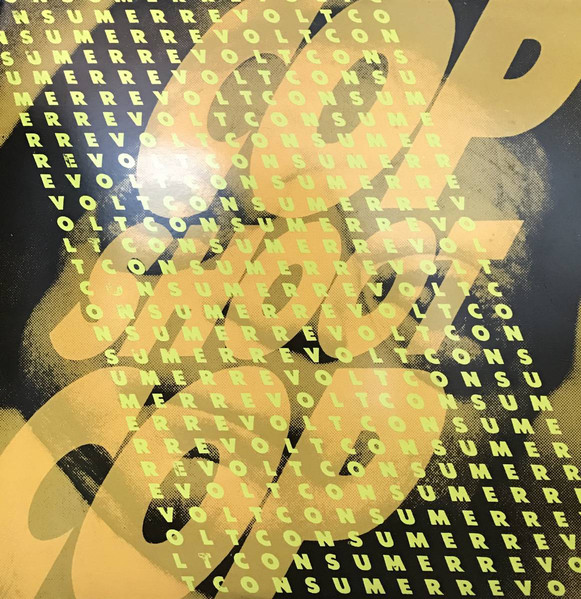
The central theme of Consumer Revolt is the illusion of security in a consumerist society — The insurmountable difficulty it takes to break the illusion and, ultimately, revolt against consumerism itself.
Opening track “Lo.Com.Denom.” illustrates how ingrained the illusion of security actually is, as singer Tod A. snarls: “This is no place for ideals/This is no time for change.”
Thus, those that are victims of the illusion are forced to submit to its logic and expectations. Again, from “Lo.Com.Denom.”: “Fifty grand will make me a man.”
Other tracks, in a move that parallels motifs in the works of the prolific British writer J.G. Ballard, examine the role that technology plays in preserving the illusion, usually in the light of weaponization. The chorus of “She’s Like a Shot” reflects this, but also, as a double entendre, alludes to heroin use.
Tod A. veers into employing architectural metaphors as well, to anti-patriarchal extremes in the song “System Test” with the lyrics: “You like a building when it looks like a penis/I want to turn them all into vaginas.” The noise collage track “Disconnected 666” gives a disconnected tone a demonic character.
The absolutist nature of the consumerist illusion culminates in defeatist sentiments throughout the record. In “Waiting for the Punchline”, a man waits anxiously and patiently for his profound suffering to be made into a joke.
“Burn Your Bridges” describes someone who’s destitute but encouraged to burn their bridges, as if sabotage will provide freedom.
“Pity the Bastard” tells the story of a man who’s deliberately abused psychologically and materially, but is pitied because he cannot kill himself.
“Eggs For Rib”, an explosive closer for an already-explosive album, about two men — one a hopeless drunk, the other having his shit together as far as we know — who separate from each other’s lives. The drunk goes down to Tijuana, the sober one stays on 42nd Street. The drunk’s condition worsens, and the sober man berates him for getting worse while the drunk falsely believes he is better off than the sober man since he’s no longer in New York: “Well you’re the new joke/From the old school/Think you’re a big shit/’Round the cesspool.”
Consumer Revolt should not be taken as a nihilistic record. It is, instead, a realistic one; the consumerist situation is assessed, hard truths are admitted, but it hesitates to provide a coherent way out.

White Noise isn’t as harsh of a record as Consumer Revolt, but the record in no way dampens the intensity and cohesion of Cop Shoot Cop as a band. It is, in some ways, a more dynamic and varied record.
It is a thematic continuation of the message that was established in Consumer Revolt, with new targets being the State and the church in particular.
This is especially apparent on the track “Traitor/Martyr” which describes a subversive character being put on trial, literally and figuratively, by the authoritarian society he inhabits. The track employs religious imagery, namely the dichotomy of Christ and Judas, to illustrate the conflict between being treasonous and martyrdom: “Judas or Jesus, which one was smarter?/Judas or Jesus, the traitor or the martyr?”
“Discount Rebellion”, the opening track, satirizes the false sense of rebellion that consumers feel when they consume material that is supposed to be dangerous but is in actuality just another commodity to be sold. “Satisfy those rebellious urges/But stay true to your obligations.” The track could be taken as an allegory for the commodification of punk rock, and alternative music in general.
“Coldest Day of the Year” and “If Tomorrow Ever Comes” convey the utter desolation of the capitalist landscape. “Coldest Day of the Year” in particular portrays the environment as an entity exacting vengeance against a foolish humanity that betrayed it, in a thematic move similar to much of Skinny Puppy’s material: “The earth which fed you now consumes you.”
“If Tomorrow Ever Comes” plays out like an elaborate suicide note of someone with “no shoulder to cry on” awaiting an apocalypse brought on by the perseverance of the capitalist system but yearns to persevere despite this: “And if tomorrow ever comes/Maybe we’ll get an explanation.”
Other tracks interrogate how weapons, drugs, and money compromise a person’s sanity.
“Feel Good” is about a man wanting to go on a shooting spree to escape ennui.
“Relief” depicts a man who’s constantly high on heroin reminiscing about physical altercations with cops.
“Heads I Win, Tails You Lose” is a song about a power struggle between a man in poverty and a man of greater wealth.
“Where’s My Money?”, a sketch about a man who owes money to someone presumably in the criminal underbelly, charts similar territory.
“Chameleon Man” speaks to people who change various aspects of themselves in order to benefit from the system: “You change your story/To suit your sickness/You change your color/To suit your weakness.” Such lyrics could apply to everyone from the rookie cop to the benefactor of the Vichy government. The refrain “do not accept what you can’t change/change what you cannot accept” is a protest against this mentality and a call to reclaim autonomy in a system stacked against you.
White Noise marked the end of an era for Cop Shoot Cop. The remainder of their material would be released by Interscope Records, a subsidiary of Universal Music Group. The label had, by this point, significant success in releasing albums from alternative bands such as No Doubt and Rocket From The Crypt as well as hip hop through distributing material put out by Death Row Records.
It would also mark a sonic departure; for their fourth LP, Release, they recruited guitar player Steve McMillen, the first time they ever recorded with a guitarist.
After an unsteady tour following Release, resulting in interpersonal tension that would become terminal, Cop Shoot Cop disbanded in 1996. Afterwards, Tod A. formed the prolific “world punk” group Firewater. Phil Puleo would join Swans for their late-2000s reformation; later, with Jim Coleman, also of Cop Shoot Cop, he would join Chris Spencer’s post-Unsane project Human Impact. Paying homage to the band, the English group Spiritualized titled a song from their LP Ladies and Gentlemen We Are Floating in Space (Dedicated, 1997) “Cop Shoot Cop”.
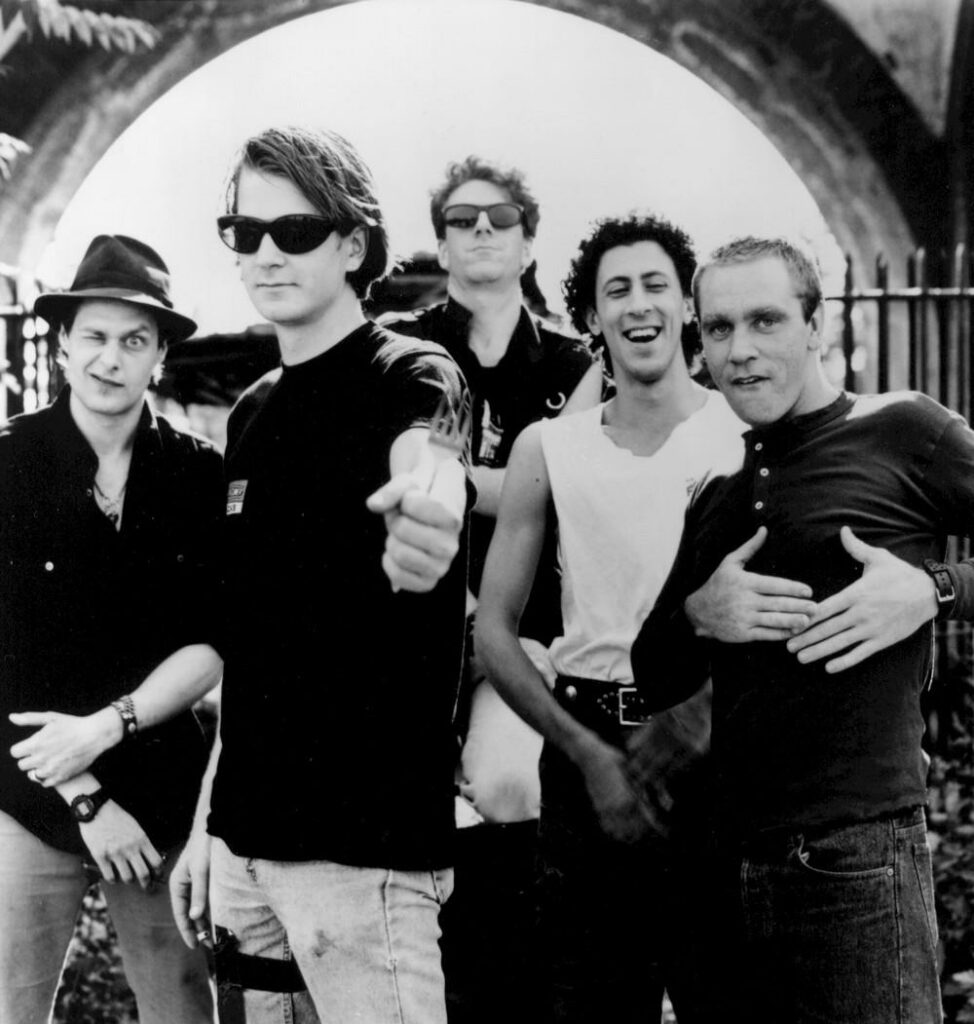
Cop Shoot Cop was a postmodern band in the truest sense — they explored the breakdown of established Enlightenment truths, and by doing so they butchered proverbial sacred cows. They accomplished this not only through vicious anti-consumerist sentiments but by bucking acceptable trends in musical approach to rock music as well, a decade before Radiohead released Kid A and Amnesiac.
As such, it is my personal hope that, during the duration of Cop Shoot Cop’s existence and in their aftermath, their music challenged traditional values through their music and inspired their listeners to become more critical, compassionate people in a conformist, cruel society.
(A video of Cop Shoot Cop performing live @ the now defunct CBGB on July 12th 1989.)
Links
- Cop Shoot Cop – Website
- Cop Shoot Cop – Wikipedia Entry
- Cop Shoot Cop – Discogs Entry
- Cop Shoot Cop – Facebook Fan Page
- Tod A – Firewater Band Page via Bloodshot Records
- Jack Nantz – Instagram
- Jim Coleman – Website
- Phil Puleo – Website
- Legendary musician Devin Townsend On Cop Shoot Cop’s ‘White Noise’ LP – Via The Quietus
Article header art by Dan Thrax.
